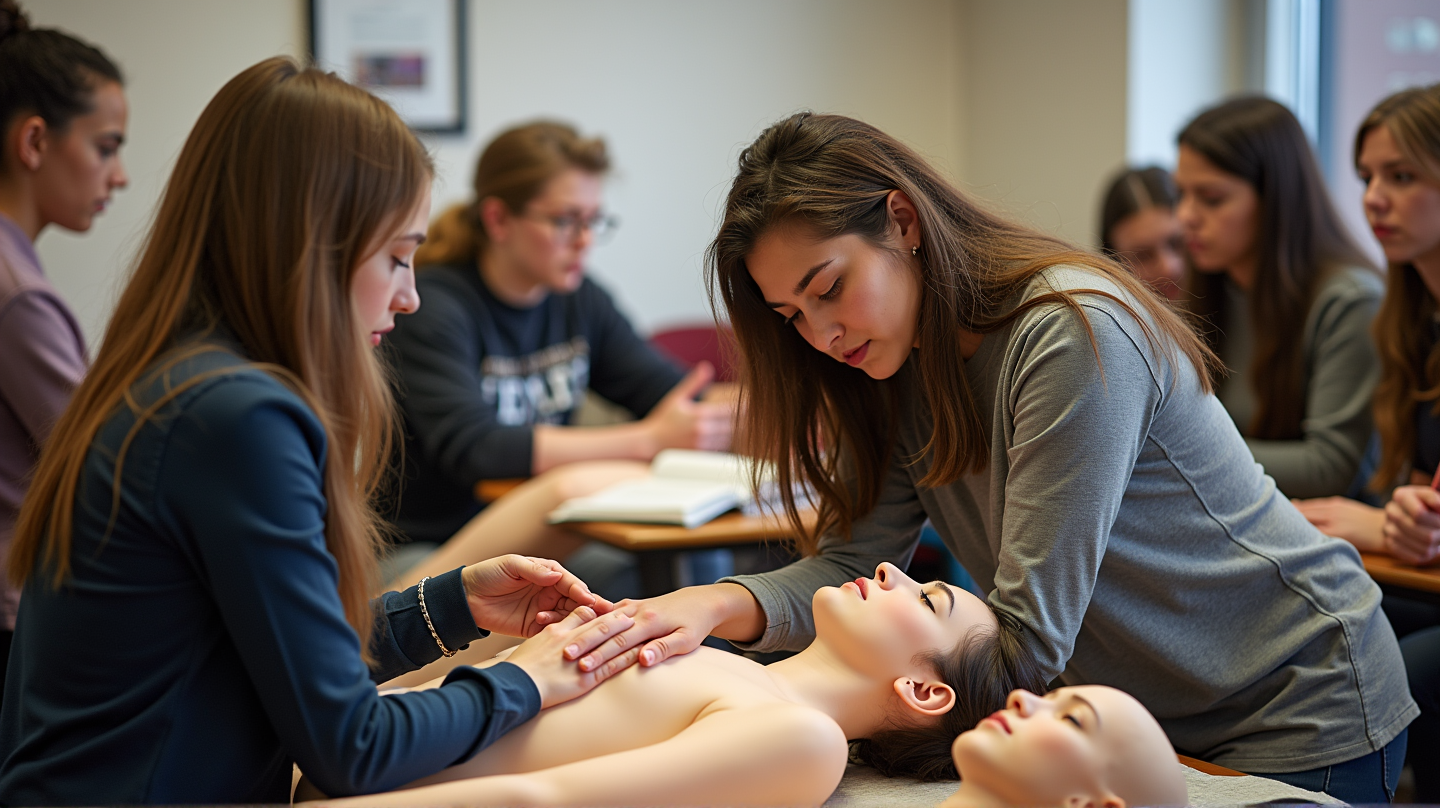Why Mastering Financial Literacy in High School is Crucial: Oklahoma's New Graduation Requirements
Oklahoma students now face new non-academic challenges to graduate, including CPR and financial literacy courses.

The New Landscape of Graduation
In Oklahoma, the path to donning that cap and gown now embraces more than textbooks and lectures. Beyond traditional academics, students like Corina Crowl must navigate a web of non-academic hurdles to step into the world as high school graduates. Across the state, seniors are finding themselves drawn into new challenges designed to equip them not just for the future, but life itself.
A Breath of Life: CPR Training
Union senior Luoxi Tang, amidst her peers, earnestly practices CPR compressions. This crucial life-saving skill has become a non-negotiable aspect of Oklahoma’s educational experience, embedding a sense of responsibility and preparedness in the young minds set to lead tomorrow.
Dollars and Sense: Financial Literacy
Navigating finances can be a formidable task, even for seasoned adults. Thus, Oklahoma’s emphasis on financial literacy aims to arm students with the knowledge needed to manage personal finances effectively. Crowl reflects on her journey, crediting sharp reminders from her teachers to tackle this annual requirement—and the laughter shared on barely meeting deadlines.
Planning the Future: Individual Career Academic Plan (ICAP)
Students are also encouraged to envision their career paths early on. The Individual Career Academic Plan, or ICAP, introduces them to this exploration from middle school through graduation. By engaging in activities that align with their aspiring futures, students like Crowl find themselves more prepared than ever for the choices they will face in the professional world.
Expanded Horizons: State Testing and the Civic Imperative
Besides personal growth, academic vigilance remains paramount. Seniors are required to present their competencies through state and standardized tests, including those in U.S. history and other subjects. This adds an extra layer, a civic examination ensuring every student grasps the essence of American citizenship, although it does not confer such status on its own.
Keeping Pace With Care: Teacher Support
Teachers, counselors, and advisors across Tulsa’s educational landscape become pillars of unwavering support. From solving bureaucratic puzzles with the Social Security Administration to delivering personalized guidance tailored to each student’s needs, their dedication ensures no graduate is neglected.
The Horizon: Graduation Evolution
What’s next for Oklahoma’s students? As set by law, evolving graduation requirements promise to shift yet again. Starting with the Class of 2029, several mandates will adjust, potentially altering how students undertake these pivotal challenges.
Oklahoma’s commitment to weaving non-academic learning into the fabric of education finds its roots in preparing capable citizens. According to Tulsa World, these requirements are not just bureaucratic hurdles; they represent a multifaceted preparation for the real-world challenges awaiting every graduating student.





